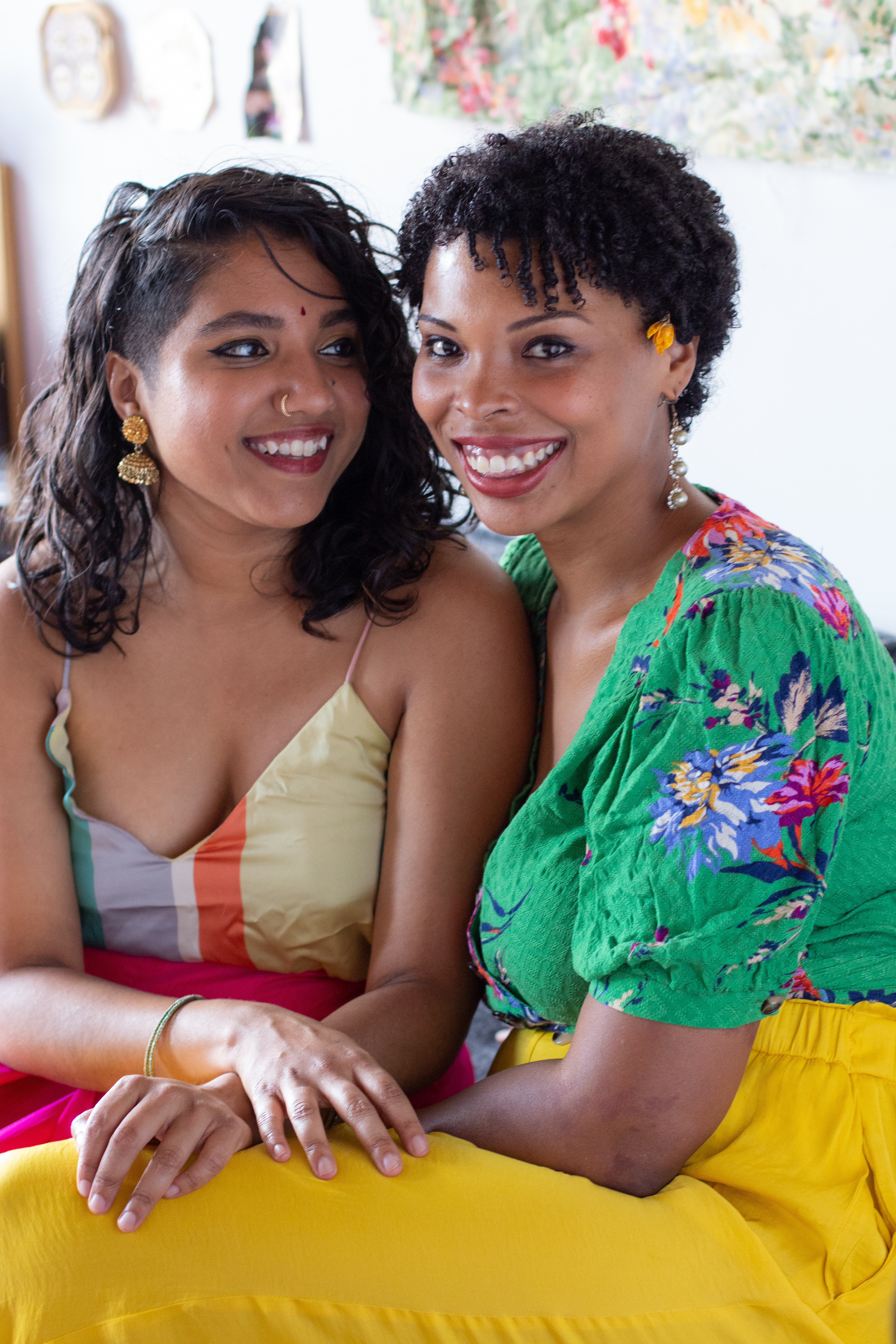
From Bumble To Love-South Indian Woman and African-American Woman
About Us
Hi everyone! Our names are Anjna and Shannon. Anjna is South Indian and Shannon is African-American. Anjna was born and raised in Montgomery County in Maryland. Shannon was born and raised in St. Louis, Missouri. We met in Brooklyn, NY!
How Long Have We Been Together
We have been together for a little over a year!
How We Met
We met on a dating app called Bumble, so it was “like at first swipe!” Our “first sight” was really to make sure that the other person was real…! We were both looking for a summer fling at the time. But we were immediately struck by how easy it was to talk to each other. Anjna is a musician. Therefore our first date was to grab a quick dinner on a random waterfront between Shannon’s workday and before Anjna’s rehearsal. Shannon made reservations so Anjna wouldn’t be late to her rehearsal, and Anjna brought her violin with her.
Anjna’s First Time Going On A Date With A Woman
It was also Anjna’s first time going on a date with a woman. Consequently, the date started humorously with the hosts and waiters calling Anjna “Shannon” until Shannon arrived. Even though time was limited, our short date turned into a long and winding walk as Shannon decided to drop Anjna off at rehearsal. We talked about family, culture, our journeys towards queerness, art, politics, food, and more! The rest is history! While we both tried to commit to this being something more casual, within a couple of months, we were best friends and in love.
Anjna When Did Your Parent’s Know That You Were Interested In Women
Anjna grew up in a family where queerness was always discussed as an option. That openheartedness lent itself well to seeing herself as being able to love any gender. Because she was very feminine while growing up, though, she struggled to see how she would fit into a queer relationship and what that would look like. There’s a way that your gender conditioning can dissuade you from witnessing your sexuality.
Feeling Like Femininity Is For Men But Finding That Femininity Can Coexist With Queerness
For Anjna, it often felt like her femininity was for the male gaze. As a result, she didn’t quite know how to place her attraction to women. After meeting Shannon, she was able to understand that her femininity could coexist with her queerness. And this time, it was a radical choice to lean into her femininity for herself and not for anyone else. Since she grew up always being an advocate and “ally” for the LGBTQ+ community, whenever someone said, “When you have a husband,” she would interrupt with “or wife!” Now, she and her family can understand that that passion was rooted in her *own* queerness. And it’s been easy to see how much more vibrant, creative, and open she is when her queerness is fully expressed.
Shannon When Did Your Parent’s Know That You Were Interested In Women
Turning 31 And Telling Her Mom For The First Time That She Is Dating A Woman
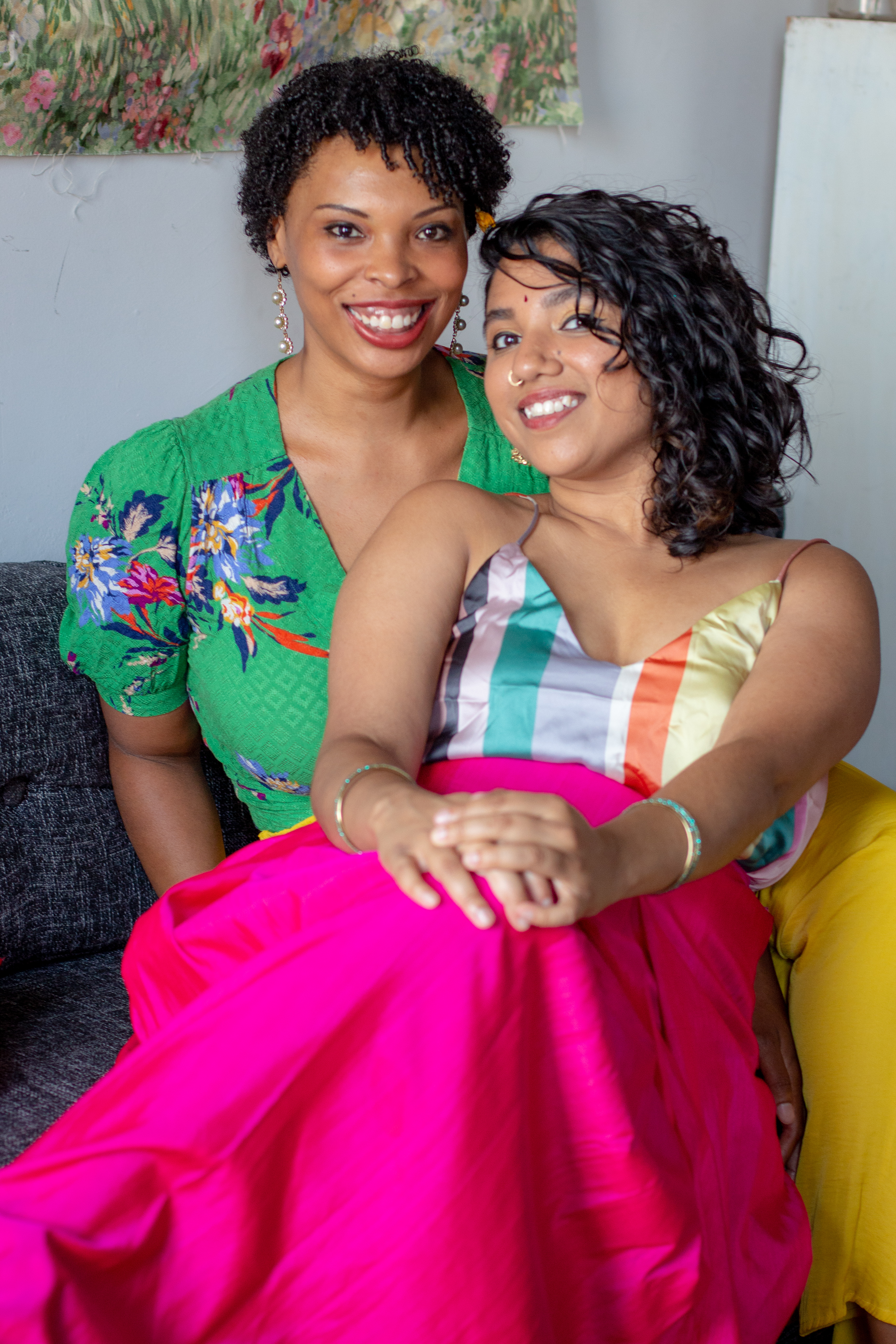
How Was Meeting Shannon’s Parents For The First Time
Shannon Had Never Brought Home A Partner
Shannon had never brought home a partner to meet her parents and wasn’t intending on it any time soon. Last November, however, Shannon’s darling dog Roo got very sick. Anjna offered to join their drive to Missouri for Thanksgiving. It was Anjna’s first time meeting a partner’s parents, and the whole thing caught Shannon by surprise. But because we were all so invested in Roo’s health, it felt like we were already family. The need to come together pushed the nerves aside and formed a space for us to build a quick and meaningful bond. The whole visit brought Shannon closer to her family too.
Shannon’s Extended Family Did Not Know We Were Together-Experiencing A Real American (And African-American) Thanksgiving
For Anjna, aside from the massive amount of meat (she grew up vegetarian, and Shannon’s folks own a BBQ restaurant), it was just like being with a large Indian family. Even though Shannon’s extended family did not know that we were together at the time, Anjna immediately felt at home. She enjoyed meeting all the Aunties with rhyming names, arguments about seasoning, multiple generations of family all under one roof, etc. It was her first real American (and African-American) Thanksgiving. When we visited again for Christmas, Roo passed away, surrounded by family. In his spirit, we shared our love with everyone, and everyone was very welcoming.
How Was Meeting Anjna’s Parents For The First Time
Going To India To Meet Anjna’s 94-year-Old Paternal Grandmother, Thathi
Because Anjna comes from a family of musicians, her father and sister were always around at performances, etc. from the beginning of our relationship. The more significant step for us was when Anjna took Shannon to India this past summer to meet her 94-year-old paternal grandmother, Thathi! It was Shannon’s first trip so far outside the U.S. and Thathi doesn’t speak English. Thathi had asked Anjna to bring Shannon to her so that she could “check out her character,” which she could only do in-person
The Cultural And Generational Implications, And How Thathi Felt About Queerness
Between the lengthy travel, the language barrier, the new culture, and wanting to make a good impression without being able to communicate verbally, Shannon was very nervous. She was also worried about the cultural and generational implications and how Thathi felt about queerness in general. She quickly realized though that she and Thathi didn’t need verbal communication to connect and understand the love that they mutually shared for Anjna. And also the Hindu god Ganesha, and mangos, and obsessively wiping down countertops, and so much more…! Within a few minutes of meeting Shannon, Thathi said, “Nalla Jodi! A perfect match. Yenakku thrupthi! I’m satisfied.” After ten days together, Shannon walked away feeling like she’d gained a grandmother in Thathi. It was special to have an elder bless our queer and interracial relationship.
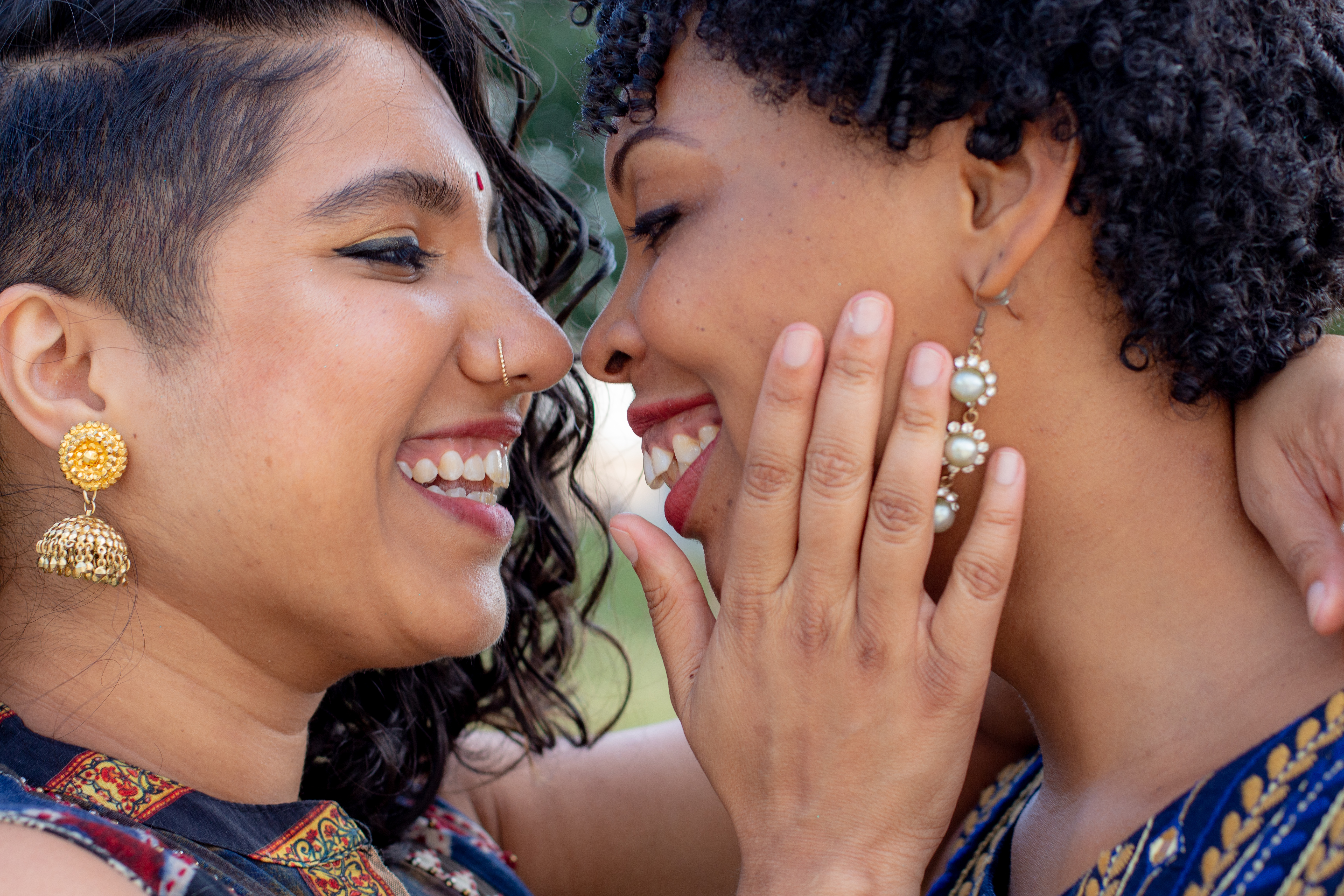
If Our Romance Had A Name What Would It Be Called
Radical Curls And Red Curry
It would be called Radical Curls and Red Curry. A few days after we met, Shannon got her big chop and started wearing her hair naturally. The day after we told each other, we loved each other, Anjna was too excited to blow dry her hair and discovered that she had her mother’s curls as well. Since then, our curls have been a metaphor for the authenticity, vivaciousness, and radical spirit with which we seek to love each other and move through the world.
I Don’t Know Why You Like Green And Yellow Curry, I Prefer Red Curry
Because of our personalities and the fact that we are a femme-femme queer couple, we tend to be very adjusting our each other’s needs. When we first started hanging out at each other’s houses and ordering take out, Anjna assumed that because Shannon liked spicy food, she would prefer Thai green curry. Shannon thought that was yellow curry and ordered yellow curry the next time around. And so we went, swapping between green and yellow curry until one day, we both blurted out, “I don’t know why you like green and yellow curry. I prefer red curry.” Thus began our shared quest to find the best red curry and the best natural hair products in the city. In the past year, our curls have been more defined and defiant and we have encouraged each other to be more authentic and outspoken. Also, our take out options have diversified and we love cooking together.
What Obstacles Have You Encountered For Being In An Interracial/Intercultural Relationship
What Do You Love About Being In An Interracial/Intercultural Relationship
Growing up In A Multicultural County
Anjna grew up in a multicultural county. The majority of her fellow students were African-American, Latinx, or immigrants from Africa, Asia, and the Middle East. She also grew up looking up to older black women who were her principals, science teachers, college professors, art teachers, and more. Altogether this nurtured in her a deep value for interrogating anti-blackness in the Indian community. And it prompted her to hold space for and to step up for the very community that taught her to be resilient, self-confident, and radical. Meeting and falling in love with Shannon has been about rekindling an Americanness in Anjna. And for her, that Americanness is the result of growing up around diversity, cultural awareness, and intersectionality.
Having A Racial Landscape Centered On Whiteness And Blackness
Shannon grew up in Ferguson, Missouri, and her racial landscape was centered on whiteness and blackness. So for Shannon having a partner who grew up between India and the US, and practicing a distinctly Indian art form (Carnatic or South Indian classical music) means decentering the American racial divide. It means understanding herself in a broader multicultural landscape. Shannon grew up going to schools with mostly white teachers and white principals. Thus seeing what it’s like to step into more diverse and multifaceted spaces has been exciting. For example, the experience of being in India, where everyone is some kind of brown, allowed her to see how racism and colorism exist everywhere in their own way. And that there are still places where things aren’t black and white.
Much like queerness helping us navigate cultural differences, being in an interracial/intercultural relationship allows us to navigate queerness and our shared womanhood differently as well. Lengthy conversations about race and identity infuse our partnership with cultural and historical awareness. Moreover it helps us understand what we each bring to the table in terms of womanhood and queerness.
What Are You Still Learning From Being In An Interracial/Intercultural Relationship
Every novel milestone is going to bring out new differences and parts of ourselves that even we didn’t know. We moved in together a few weeks ago, and we are grateful for the learning, dialogue, and beauty that will come with any new challenges that this brings.
Anything Else You Want To Add To Help Others Reading This
Loving across cultures allows us to love ourselves more profoundly. When we love without a blueprint and expectations, everything we do is a choice. We choose each other every day. And while we are a young partnership, we know the work we are doing now is building a foundation for a vibrant future.
What did you think of Anjna and Shannon’s astounding love story? Thank you both for your forthrightness and for sharing your remarkable journey with us.
Pin this post on Pinterest below!
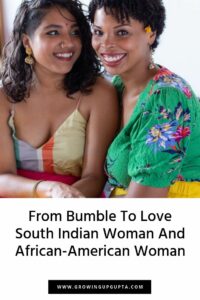
This blog contains affiliate links which support the operation of this blog!
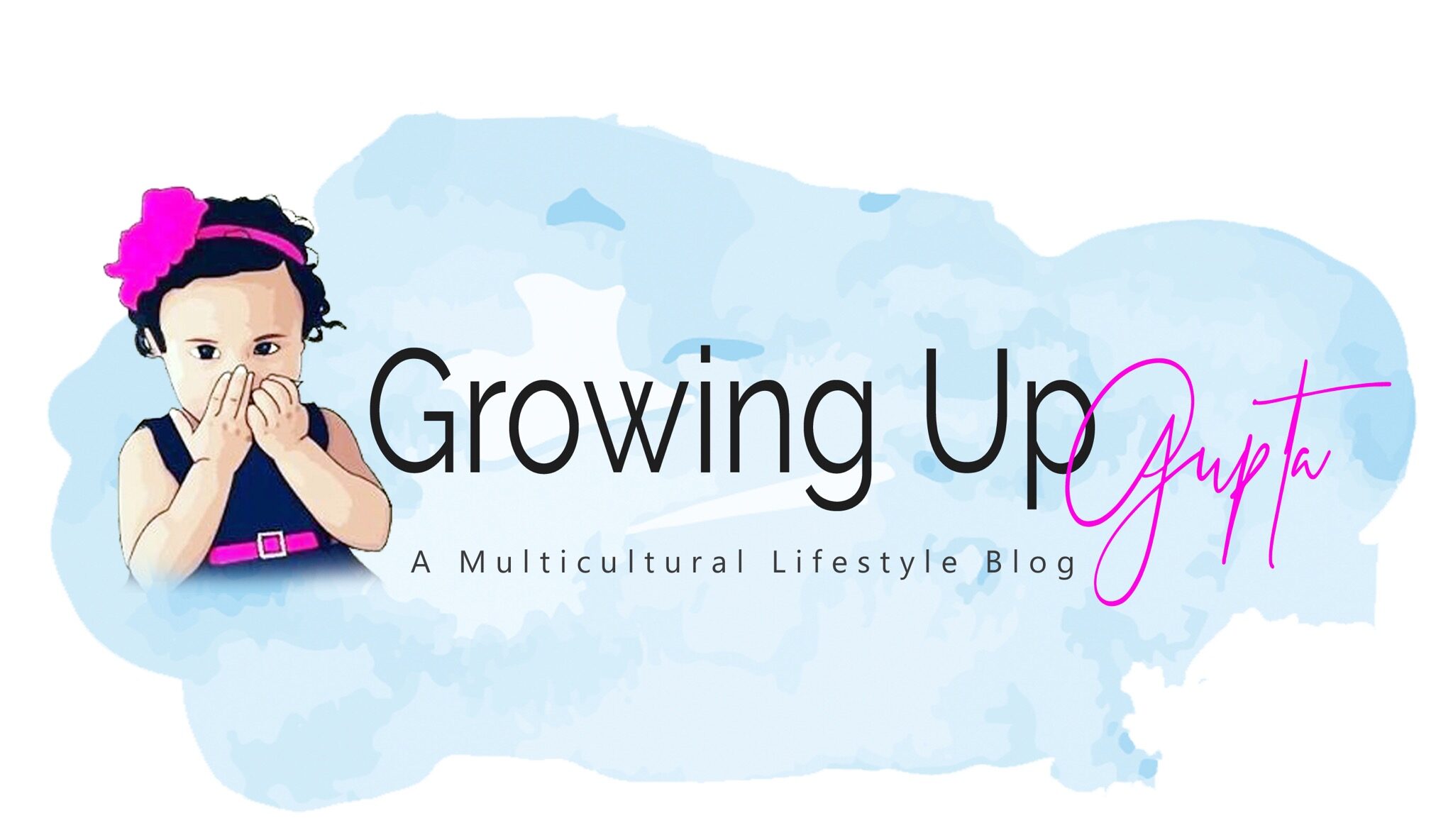
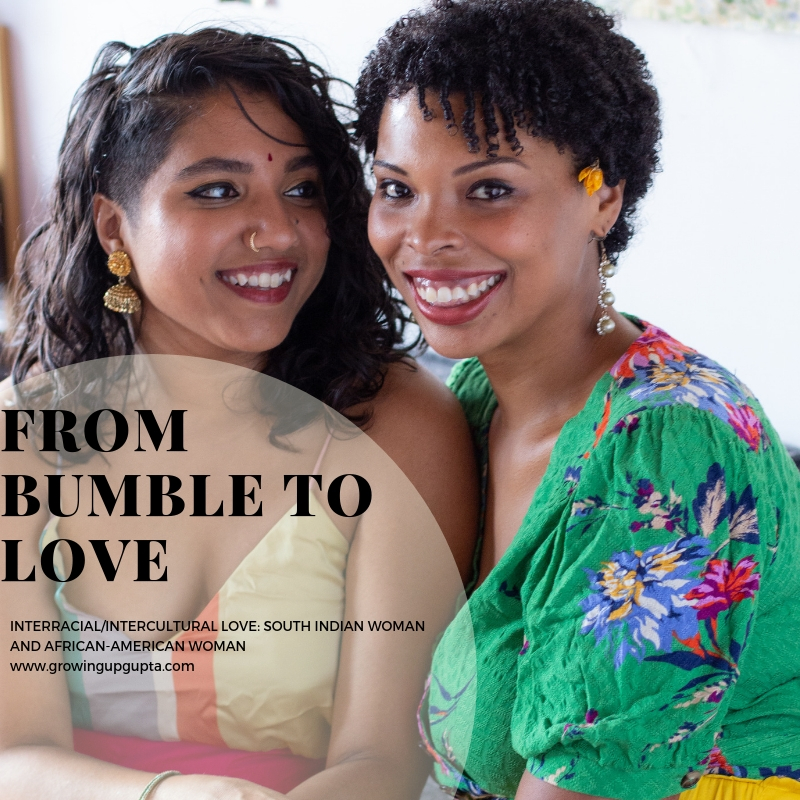






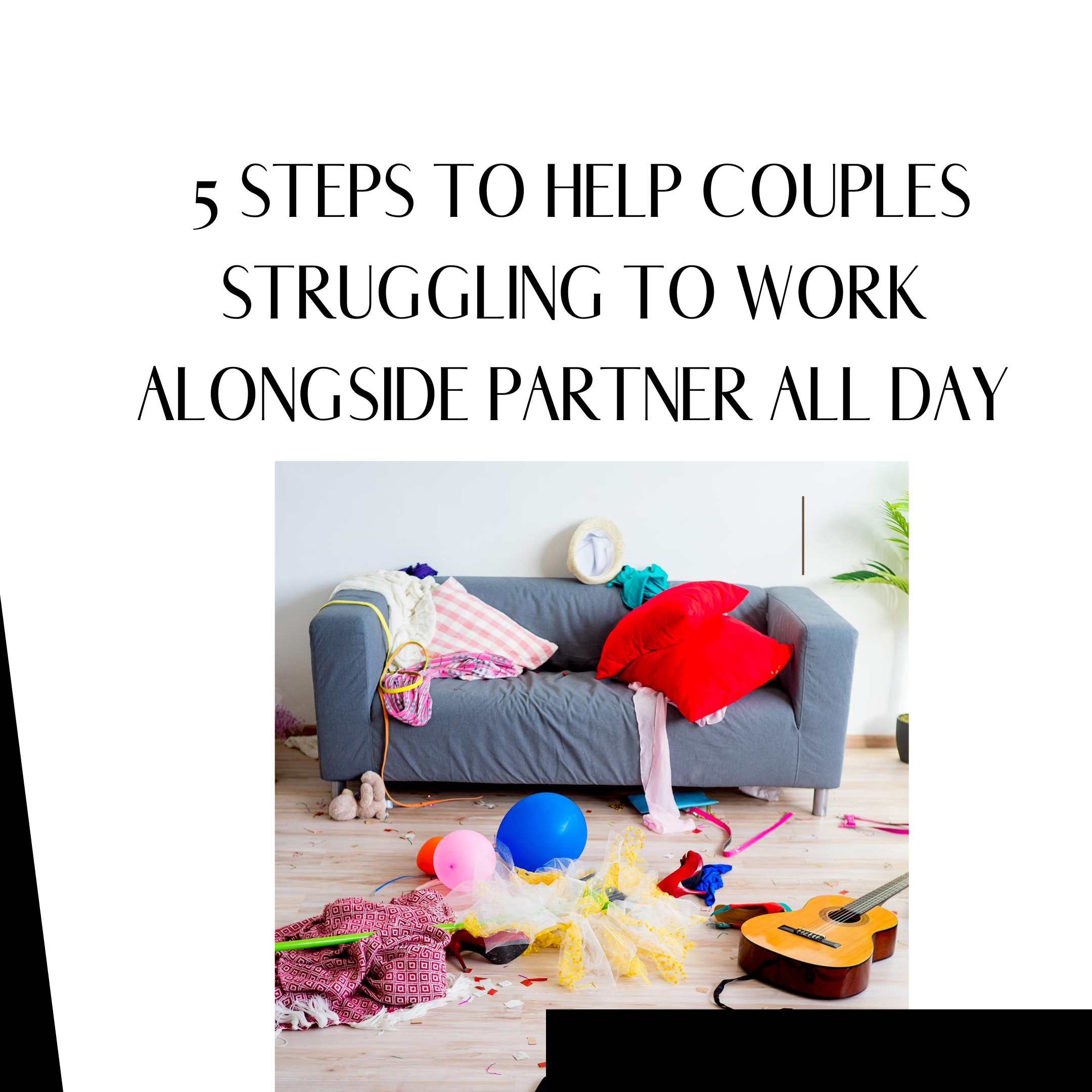

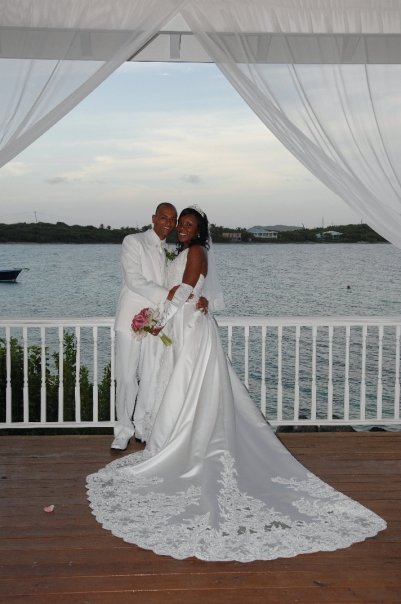
There is NEVER a bad #LoveStory, but there is ALWAYS lots of very distinct and unique chapters and verses inherent within everyone’s story. I was very shocked (and happy, of course) to hear of Anjna’s Grandmother’s acceptance..! No one really acknowledges this “out loud” because only the negative is sensationalized and made public, but the more (real) love “grows” and expands IT IS SO PROFOUND AND PROLIFIC that it changes cultures and mindsets, and behaviors, and norms… It really is the most powerful force in the Universe. Seeking and finding (real) love should be the most earnest and unrelenting pursuit of mankind all over the world. This story is a reminder that if you stand for love… Love will stand for you as well.
So eloquently put! We agree with you! Thanks for reading and writing!